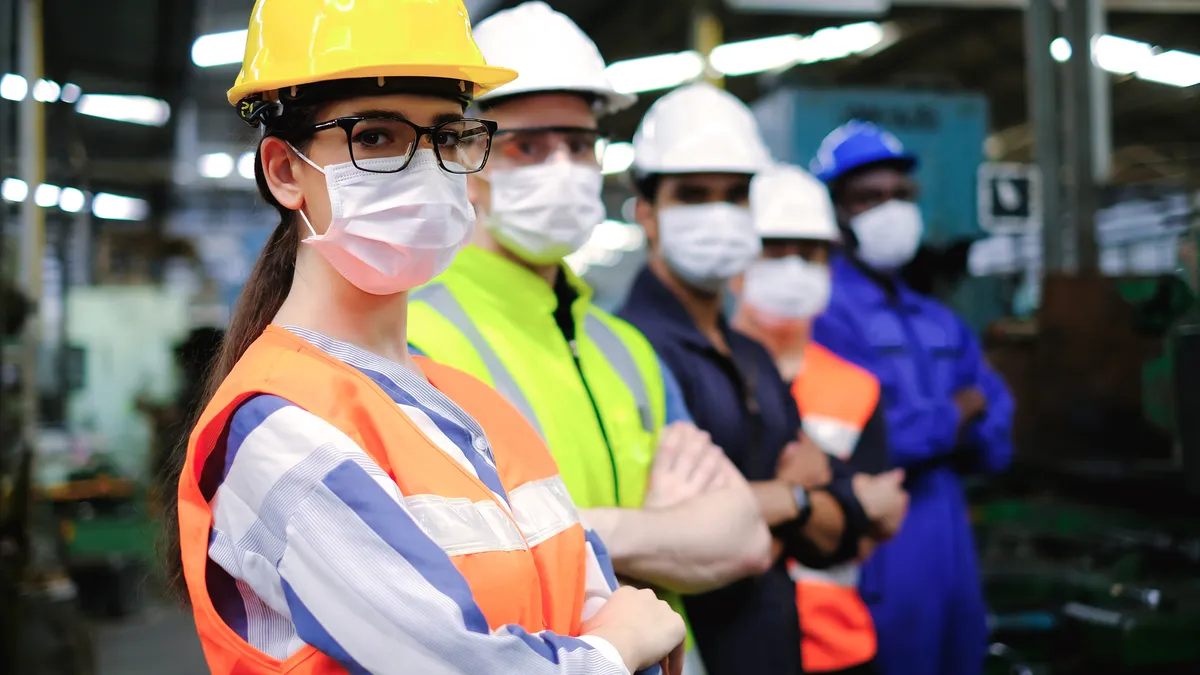Dive Brief:
- Employers aren’t liable for their employees contracting COVID-19 at work and spreading it to their family members, even if the employer was negligent in its safety practices, the California Supreme Court ruled on July 6 in a big win for business.
- The derivative injury rule of the state’s worker compensation law doesn’t prevent non-employees from bringing a personal injury or wrongful death case against an employer, but because of the scope of COVID-19, the burden of protecting workers can’t fall on employers, the court said.
- “Because it is impossible to eliminate the risk of infection, even with perfect implementation of best practices, the prospect of liability for infections outside the workplace could encourage employers to adopt precautions that unduly slow the delivery of essential services to the public,” Associate Justice Carol Corrigan said in the unanimous opinion in Kuciemba v. Victory Woodworks.
Dive Insight:
In the suit, Corby Kuciemba sought compensation from Victory for her month-long hospital stay for COVID-19 complications after her husband brought the virus home from his construction job.
The lawsuit was originally filed in late 2020 in state court but was moved to federal district court, where it was dismissed on the grounds the company’s duty to provide a safe workplace didn’t extend to non-employees.
The 9th Circuit Court of Appeals, after taking the case, asked for the opinion of the California Supreme Court. The opinion it handed down this week is expected to be a key factor in how the appeals court decides.
“The 9th circuit has no choice but to adopt what the California Supreme Court has decided, and the California Supreme Court has decided that the employer owes no duty to the household, so that should dispose of the claim,” William Bogdan of Hinshaw & Culbertson, who represented Victory, told the Los Angeles Times.
COVID scope
Key to the decision is the scope of COVID-19, Corrigan said. Unlike something like asbestos, where workers can bring home fibers and cause cancer in a family member, COVID-19 is potentially everywhere, making every employer a potential defendant. Asbestos, by contrast, is limited to those employers who work with the material and the cancer that can be caused by it is rare, even among those who are exposed to it.
The duty of care is also outweighed by COVID’s scope. Although employers can be expected to have a duty of care to the extent they know of COVID and of measures to take to curb its spread, the burden on employers, and even on the wider community, including the court system, is too broad in the case of COVID.
“While the foreseeability factors and the policy factor of moral blame largely tilt in favor of finding a duty of care, the policy factors of preventing future harm and the anticipated burdens on defendants and the community weigh against imposing such a duty,” Corrigan said.
Public institutions and broader society would be overburdened if businesses were held legally responsible for their employees spreading COVID at home.
“In addition to dire financial consequences for employers and a possibly broader social impact, the potential litigation explosion facilitated by a duty to prevent COVID-19 infections in household members would place significant burdens on the judicial system and, ultimately, the community,” she said. “As amicus curiae Construction Employers’ Association aptly put it, ‘If there was ever a “floodgates” situation, this is it.’”













